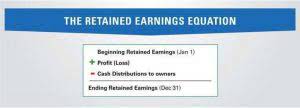
This helps in accurately tracking income and expenses, and aids in understanding the financial health of the business. A bookkeeper with strong attention to detail can identify inconsistencies or inaccuracies in financial records, ultimately helping the business maintain clear and accurate documentation. Continuous training and the use of advanced tools can further strengthen this skill, enabling bookkeepers to excel in their role and support the financial health of the company. Bookkeepers are responsible for managing financial records, and one of their core skills is attention to detail. This skill is crucial in ensuring accuracy and minimizing errors in complex data sets. Bookkeepers must be diligent and meticulous when recording transactions, as even minor mistakes can have significant implications for a company’s finances.
- Bookkeepers must have a keen eye for detail to ensure all financial records are precise and error-free.
- If your business is growing rapidly, expanding into new markets, or needs long-term financial planning and fundraising strategies, a CFO is a valuable asset.
- Accountants may also hold professional certifications, such as a Certified Public Accountant (CPA) license, which require advanced education and training.
- Working together, bookkeepers and accountants form a crucial part of a business’s financial infrastructure, ensuring accuracy, compliance, and a strong basis for decision-making.
- This option is often used by small to medium-sized businesses that only need a couple of hours’ worth of bookkeeping every month.
- Chartered accountants are usually required to engage in Continuous Professional Development (CPD).
Create a free account to unlock this Template
In contrast, chartered accountants generally hold a bachelor’s degree in accounting or finance. This degree equips them with a deep understanding of financial laws, regulations, and accounting principles. To make the payments for your accounts payable, you also need to what does a bookkeeper do collect payments from your customers, especially if you are offering payment terms.
- Keeping up with the records in your small business might be a task you are willing and able to tackle yourself.
- The word comes from bookkeeping, which means the process of keeping records.
- For instance, one bookkeeper might focus on accounts payable and accounts receivable, whereas another will focus primarily on payroll.
- You can expect your duties as a bookkeeper to vary slightly, depending on the size and type of organization you work for.
- While bookkeepers must comply with basic financial reporting standards, chartered accountants are subject to more stringent regulations.
- Use these bookkeeper duties as a base to work from and adjust it to fall in line with the procedures of your office.
- They may also be responsible for payroll administration and ensuring all transactions are categorized correctly for tax purposes.
What Does a Bookkeeper Do?
Double-entry bookkeeping records all transactions twice, usually a debit and a credit entry. Typically, double-entry bookkeeping uses accrual accounting for liabilities, equities, assets, expenses and revenue. DocuClipper is trusted by over 10,000 professionals for accurate fixed assets and quick data extraction from financial documents such as bank statements, invoices, receipts, purchase orders, and tax forms. It’s especially helpful if you’re a small business owner who can’t justify the cost of a full-time accountant. You also have the flexibility to work with remote bookkeepers or accounting firms, gaining expert support without the overhead. With virtual bookkeeping, you can send invoices, track expenses, and generate reports from anywhere, anytime.

Creating Financial Statements
Sometimes, your situation might not require a dedicated bookkeeper — but you could still use a hand with recordkeeping and expense tracking. If you go this route, make sure you’re keeping good track of what it costs you to do business, using something like a spreadsheet for your expenses. This can help forecast future cash flow conditions so you can plan for, say, a dry month.

Bookkeepers are responsible for providing accurate, up-to-date financial information about a business. Generally, if your assets Bookkeeping for Veterinarians are greater than your liabilities, your business is financially stable. Note that certain companies, such as those in service-based industries, may not have a lot of equity or may have negative equity. Check out our helpful guide for deciding when is the right time for your business to invest in hiring a bookkeeper. You don’t need any special training to be a bookkeeper—you don’t even need a bachelor’s degree.
- While bookkeepers maintain the accuracy of financial data, accountants apply their expertise to guide decisions that align with business goals.
- However, it is the accountant’s job to see huge, overarching issues and also provide possible solutions.
- The records they keep include expenditures (money spent) and receipts (money received).
- The bookkeeper is generally responsible for overseeing the first six steps of the Accounting Cycle, while the last two are typically taken care of by an accountant.
Download the guide about bookkeeping
A bookkeeper plays a vital role in creating financial statements for businesses. They are responsible for accurately recording all financial transactions, which serve as the foundation for these reports. The primary financial statements include the income statement, balance sheet, and cash flow statement.

Maintaining Financial Transactions
- Attention to detail and consistent accuracy in financial tasks are heightened with advanced education, often contributing to a bookkeeper’s professional credibility.
- It’s especially helpful if you’re a small business owner who can’t justify the cost of a full-time accountant.
- On the other hand, corporate bookkeeping involves managing subsidiary accounts and adhering to specific standards such as GAAP or IFRS.
- They must carefully compile financial data throughout the year to provide accurate information on tax returns.
- For example, the NACPB requires professionals who want to become Certified Public Bookkeepers to complete coursework in accounting, payroll and QuickBooks online accounting software.
- Then, get hands-on experience with popular accounting software like QuickBooks, Xero, or FreshBooks.
Whether you’re a freelancer or a growing business, switching to digital tools allows you to streamline operations, cut costs, and focus more on running your business—not managing paperwork. Chartered accountants are usually required to engage in Continuous Professional Development (CPD). They must complete a certain number of hours in learning activities annually to retain their CPA or CA status. These certifications are essential as they form the basis of professional credibility in the field, influencing career advancement and potential earnings. In the meantime, though, here’s a quick summary to help you figure out which kind of bookkeeping is right for you, from the lowest maintenance to the most resource-intensive.

By meticulously recording all financial transactions, bookkeepers provide a clear and detailed financial history vital for audits, tax filings, and financial analysis. Maintaining the general ledger involves categorizing and summarizing all financial transactions systematically. The general ledger is the backbone of a company’s financial records, providing a comprehensive overview of its financial activities. It includes detailed accounts for assets, liabilities, equity, revenues, and expenses, crucial for generating financial statements and reports. An accountant can certainly perform bookkeeping tasks, but the title generally involves other responsibilities as well. An accountant may interpret the financial records that a bookkeeper compiles, in order to assess a company’s financial health.
